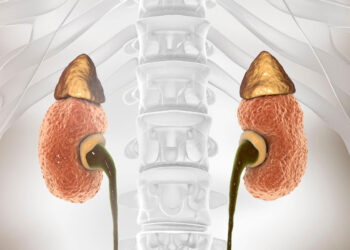TOPLINE:
Individuals with Raynaud phenomenon without underlying systemic autoimmune rheumatic diseases had higher risks for major adverse cardiovascular events (MACE) and venous thromboembolism than did a comparator group with irritable bowel syndrome (IBS), regardless of age.
METHODOLOGY:
- Researchers conducted a retrospective cohort study to examine whether individuals with Raynaud phenomenon experienced cardiovascular outcomes more frequently than those without the condition.
- They included 30,088 individuals younger than 45 years and 60,145 aged 45 years or older with Raynaud phenomenon without systemic autoimmune rheumatic diseases , identified from electronic health records of centers in North America between March 2005 and March 2025.
- An equal number of propensity score-matched individuals with IBS were assigned as comparators to both age categories. The researchers chose IBS as a comparator group because, like Reynaud phenomenon, it is common in younger and female individuals. In addition, it is not known to be associated with adverse cardiovascular outcomes.
- Co-primary outcomes were MACE and venous thromboembolism, evaluated over mean follow-up durations of 4.4-4.9 years across groups.
TAKEAWAY:
- Among individuals younger than 45 years, those with Raynaud phenomenon had higher risks for MACE (hazard ratio [HR], 1.23; 95% CI, 1.07-1.42) and venous thromboembolism (HR, 1.32; 95% CI, 1.20-1.46) than did those with IBS.
- Similar results were observed among individuals aged 45 years or older, where those with Raynaud phenomenon had higher risks for MACE (HR, 1.17; 95% CI, 1.13-1.20) and venous thromboembolism (HR, 1.20; 95% CI, 1.14-1.26) than those with IBS.
- Individuals with Raynaud phenomenon had higher risks for secondary outcomes such as stroke, any cardiovascular disease, and pulmonary embolism noted in both age categories.
IN PRACTICE:
“[This] data substantiates several previous reports of an increased risk of CVD [cardiovascular disease] in individuals with RP [Raynaud phenomenon], and provides further supporting evidence of a similar risk of VTE [venous thromboembolism],” the authors of the study wrote. “Taken together our findings lend further support to suggest that RP (in the absence of any secondary SARD [systemic autoimmune rheumatic disease]) could be a manifestation of subclinical CVD. Of course, this requires further confirmation including prospective studies,” they added.
SOURCE:
This study was led by Michael Hughes, The University of Manchester, Manchester Academic Health Science Centre, Manchester, United Kingdom. It was published online on August 5, 2025, in Seminars in Arthritis and Rheumatism.
LIMITATIONS:
Diagnostic codes were used for identifying the conditions; however, misclassification bias may be possible. Details such as digital ischemic episodes were not available for individuals with Raynaud phenomenon and age of onset and family history were not assessed. Many oral drug treatments for Raynaud phenomenon are vasodilators also used for systemic hypertension; hence, the primary indication was unclear.
DISCLOSURES:
One author reported receiving support from the National Institute for Health and Care Research (NIHR) Manchester Biomedical Research Centre. Another author reported receiving support from NIHR Clinical Lectureship, and working at centers supported by Versus Arthritis and NIHR Manchester Biomedical Research Centre. Two authors reported receiving research funding, speaker fees, honoraria, and consultancy fees and having other financial ties with multiple companies including Janssen, Sanofi, and Novartis.
This article was created using several editorial tools, including AI, as part of the process. Human editors reviewed this content before publication.
Source link : https://www.medscape.com/viewarticle/raynaud-phenomenon-tied-elevated-cardiovascular-risk-2025a1000lls?src=rss
Author :
Publish date : 2025-08-14 16:53:00
Copyright for syndicated content belongs to the linked Source.











